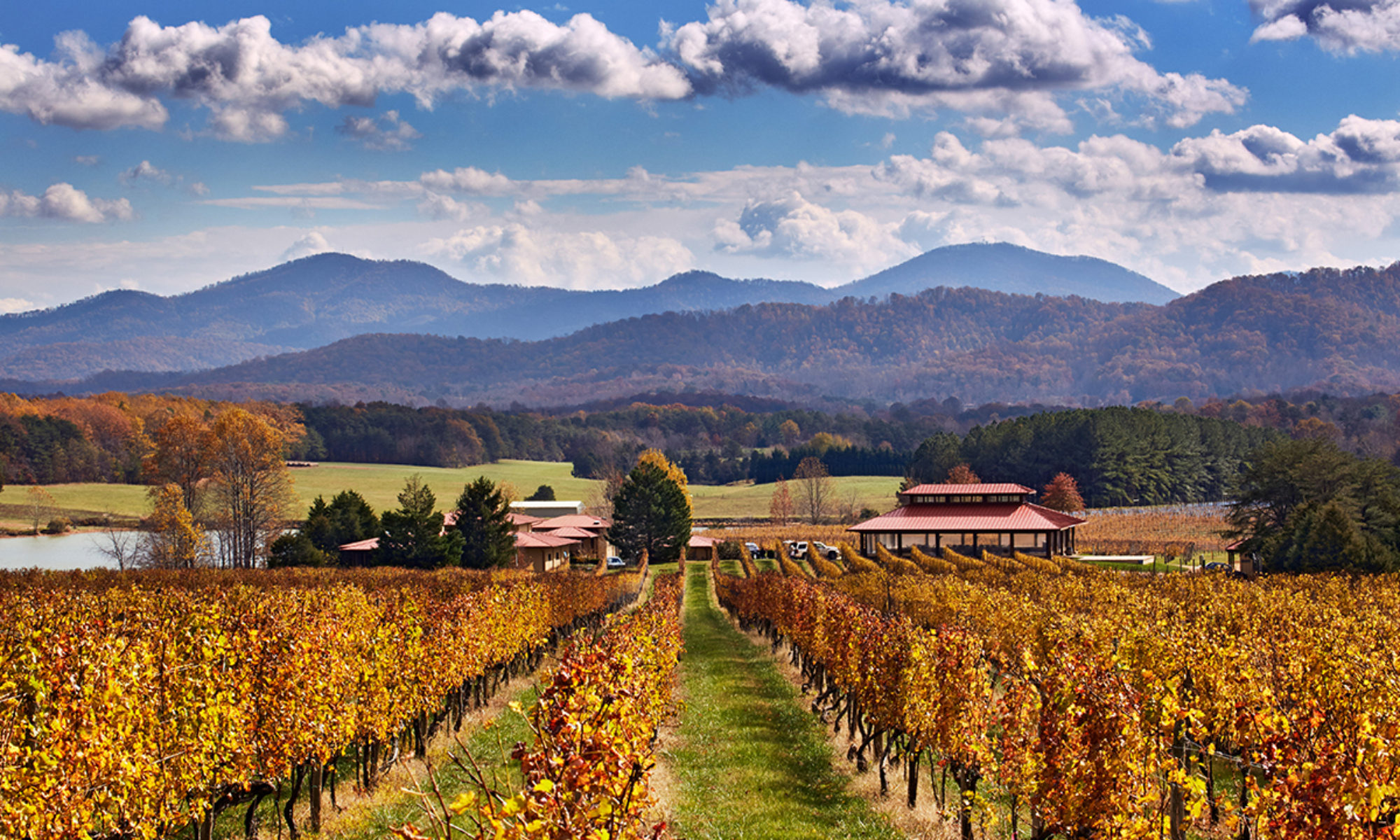Cedar Creek Vineyard [Closed]
In the northwestern Shenandoah Valley, about 10 miles West of Strasburg and along the historic creek for which it is named. Cedar Creek was established by Ron Schmidt, a former US Park Police officer, who planted his first vines in 1999, with the first vintages in 2008. The very small boutique winery has a unique approach to the vineyard which it has retained since opening, planting only Chardonnay and Cabernet Franc.
Wine. Tier II. All wines are from estate grown grapes, meaning in this case only Chardonnay and Cabernet Franc. With its unusual two-varietal approach, Cedar Creek offers not just tasting of its most recent vintage, but also vertical tastings (tastings of multiple years of the same wine). Two of its Cabernet Francs (2012 and 2014) were awarded silver medals at the 2018 Virginia Governor’s Cup state-wide wine tasting competition.
Setting. Great views of nearby mountains as well as the vineyard. Ron generally does all the tastings personally. No food available, but tasters are welcome to bring their own and enjoy it on the deck or picnic grounds. A narrow winding road into the mountains to get there. Open limited hours and worth checking first whether Ron or his wife are there before arriving.
Stories. Cedar Creek Battlefield lies just off of the intersection of Interstates 66 and 81. It commemorates the Battle of Cedar Creek, or the Battle of Belle Grove, fought on October 19, 1864. This was the culminating battle of the Valley Campaigns of 1864 during the American Civil War, and effectively ended any hopes of the Confederacy invading and pressuring the North so as to win the War. That morning, Confederate General Jubal Early surprised the encamped army of Union General Philip Sheridan, across Cedar Creek, northeast of Strasburg. Sheridan had been away from his unit, in Winchester. By 10 a.m., Early had developed a stunning Confederate victory, capturing 1,300 Union prisoners and 24 cannons, and driving seven infantry divisions off the field with a smaller force. The Union infantry lost numerous prisoners and cannons. But rather than exploiting his victory, Early ordered a halt in his offensive to reorganize. Sheridan, dramatically riding to the battlefield from Winchester, was able to rally his troops. Fortunately for him, Early’s men were too occupied to take notice of the Union general’s dramatic arrival; they were hungry and exhausted and fell out of their ranks to pillage supplies from the Union camps. A Union counterattack that afternoon routed Early’s army, which was forced to abandon all of the captured Union guns and wagons from the morning attack, as well as most of their own. At the conclusion of this battle, the final Confederate invasion of the North was effectively ended. The Confederacy was never again able to threaten Washington, D.C. through the Shenandoah Valley, nor protect one of its key economic bases in Virginia. The stunning Union victory aided the re-election of Abraham Lincoln. A famous poem, “Sheridan’s Ride,” was written about the battle.
